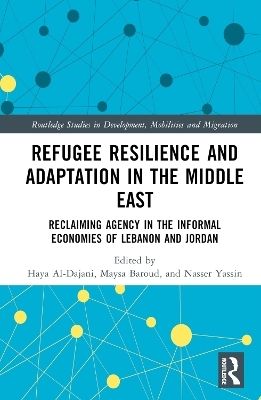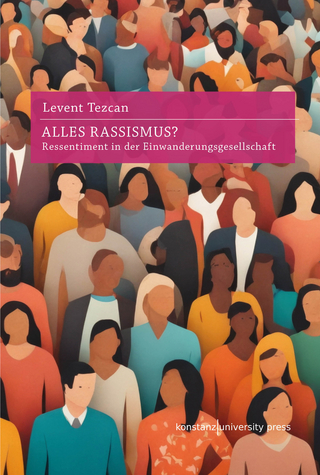
Refugee Resilience and Adaptation in the Middle East
Routledge (Verlag)
978-1-032-25312-1 (ISBN)
This edited volume investigates how refugee communities in the Middle East have adapted to secure their livelihoods within the informal economy.
Focusing on Lebanon and Jordan, which between 2011 and 2020 received more refugees as a proportion of their population than any other countries in the world, this edited volume investigates the informal mechanisms that Syrian refugees have adopted to fit into the informal economies of Lebanon and Jordan in the face of significant challenges and barriers. The volume investigates how legality, temporality, connectedness, gender, and geography, among other factors, have influenced the emergence of refugee communities’ informal adaptive mechanisms. Drawing on in-depth, original research among Syrian refugee tribal communities, agricultural workers, female-headed households, and micro-entrepreneurs, the volume provides tangible policy and practice recommendations to help to improve the situation of refugees and vulnerable populations that are employed in the informal economy.
Highlighting the resilience and agency demonstrated by refugees, this edited volume’s original community-based analysis will be of interest to students, researchers, and professionals from across Middle East studies, refugee studies, informal labor economics, and development studies.
Haya Al-Dajani, PhD, is a professor of Entrepreneurship at the Mohammed Bin Salman College for Business and Entrepreneurship (MBSC) in the Kingdom of Saudi Arabia. Maysa Baroud is currently an independent researcher. Previously, she was a project coordinator and researcher within the Refugee Research and Policy Program at IFI, where she coordinated and contributed to the project leading to this edited volume. Nasser Yassin, PhD, is currently the Minister of Environment in Lebanon. He is also a professor of Policy and Planning at the American University of Beirut (on leave).
1. Introduction: Refugee resilience, adaptation, and agency in Jordan and Lebanon 2. Forced migration, resilience, and informal adaptive mechanisms 3. Informal livelihood strategies of Syrian refugees in Jordan and Lebanon 4. A review of livelihoods policies and opportunities for Syrian refugees in Lebanon and Jordan 5. Syrian refugees and Lebanon’s agriculture sector 6. Informal livelihoods of Syrian refugee female heads of households in the Bekaa Valley Camps in Lebanon 7. Syrian refugee micro-entrepreneurs in Lebanon and Jordan 8. The livelihoods of the Bani Khalid tribe in Jordan, Syria, and Lebanon after the 2011 Syria crisis 9. Conducting research with Syrian refugees 10. Conclusion: Reflections and research directions
| Erscheinungsdatum | 17.04.2023 |
|---|---|
| Reihe/Serie | Routledge Studies in Development, Mobilities and Migration |
| Zusatzinfo | 12 Tables, black and white; 1 Line drawings, black and white; 4 Halftones, black and white; 5 Illustrations, black and white |
| Verlagsort | London |
| Sprache | englisch |
| Maße | 156 x 234 mm |
| Gewicht | 553 g |
| Themenwelt | Sozialwissenschaften ► Politik / Verwaltung |
| Sozialwissenschaften ► Soziologie ► Spezielle Soziologien | |
| Wirtschaft ► Volkswirtschaftslehre ► Makroökonomie | |
| ISBN-10 | 1-032-25312-6 / 1032253126 |
| ISBN-13 | 978-1-032-25312-1 / 9781032253121 |
| Zustand | Neuware |
| Informationen gemäß Produktsicherheitsverordnung (GPSR) | |
| Haben Sie eine Frage zum Produkt? |
aus dem Bereich


